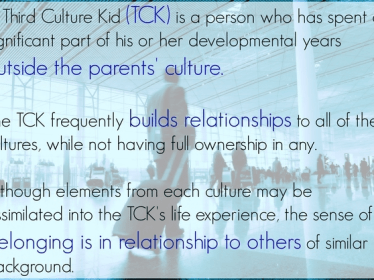 We have books for Nina in all three languages that she’s growing up with. So far, Nicolas and I stick to OPOL (One Parent One Language) quite religiously, which also applies to the book reading time. It means that when I read a book with Nina I read in Chinese, and when Nicolas reads a book with Nina he reads in French.
We have books for Nina in all three languages that she’s growing up with. So far, Nicolas and I stick to OPOL (One Parent One Language) quite religiously, which also applies to the book reading time. It means that when I read a book with Nina I read in Chinese, and when Nicolas reads a book with Nina he reads in French.
So here is the dilemma. When we read a book that’s not written in ‘our language’ basically what we do is speaking ‘our language’ (by live translating or simply improvising) while looking at the written language of the book. One of Nina’s favorite books at the moment is ‘Hairy MacLary from Donaldson’s Dairy’, a picture book in English about the little hairy black dog Maclary going out and about running into other dogs. It’s a beautiful book both in drawing and in text. The text rhymes, but of course it rhymes in English only! So when I read – meaning Speaking by half translating half improvising the story in Chinese – the rhyme is totally gone!
While it serves the purpose – from linguistic point of view – on providing Chinese language input in this case, it loses the beauty of its original language (in English in this case).
So I wonder if there are times, such as reading books, when it’s better to just follow the language that the book is written in?
—
<update on Oct 19th>
I shared my dilemma with ‘Raising Multilingual Children’ group on facebook, and got some fantastic insights from the members there! It’s relieving to read that I am certainly not the only person with the dilemma – there are many others out there facing the similar challenge and come up with their own solution with trials and errors. A more popular practice through these comments is to eventually read the book in the language that the book is written in. However there is one practice that I particularly like, which is to make sure at least certain amount of time every day (20 minutes in that case) to read the ‘minority language’ books. I like this practice because: 1) it ensures the quantity of the exposure of the minority language (in reading/speaking/hearing) on regular basis; 2) it respects all the languages that the books are written in, hence ensures the quality of exposure of all languages by helping the children to build the connection between the written form and the spoken form of these languages.
So I decided to give a try this morning – not live translating non-Chinese books into Chinese, and read only Chinese books in Chinese. Nina picked up one of her favorite French books (Tchoupi Part En Vacances), and came sitting next to me signaling me to read the book to her. I have read this book many times with her in Chinese, but this time I started to read … in FRENCH! After I read the first phrase or so, I saw Nina literally turning her head from the book to me, looking at me … puzzled/surprised. Did she realize that I was not using the ‘normal’ language? Did she notice something different? Was she saying ‘why are you reading this book like papa’?
It’s absolutely fascinating to see how much a child at her age (merely 21 months, who has only less than 2 dozens of vocabularies) is aware of what’s going on around her, from linguistic perspective. She knows what mama is talking about in which language, and picks up immediately when mama starts to do things differently. They are exquisite observers, which make them the most exquisite learners.
Now what’s left to do is to make sure we build a good collection of books in Chinese and French (the more difficult ones being in Australia), and read English books in English.
Like this:
Like Loading...
 At the moment, Nina is a big fan of 小桃子, the main character – a baby named Tao Zi – in a cartoon book series, translated from Japanese to Chinese. There are about 10 books in the series – all with 小桃子 doing something very simple but cute in each of them, such as seek-and-hike with a boat/car/plane, share lunch with a lion dad and lion baby, bath with her 3 best friends (gold fish, cactus, angel – I can’t help but add here that only a Japanese/Asia children’s book would have such beings as best friends for a baby – cactus for goodness sake!), going for a walk and then fall, swing at midnight. Simple stories, simple drawing, each with some very simple words (in Chinese) on each page. Perfect book for Nina’s age. Even I fell in love with 小桃子。
At the moment, Nina is a big fan of 小桃子, the main character – a baby named Tao Zi – in a cartoon book series, translated from Japanese to Chinese. There are about 10 books in the series – all with 小桃子 doing something very simple but cute in each of them, such as seek-and-hike with a boat/car/plane, share lunch with a lion dad and lion baby, bath with her 3 best friends (gold fish, cactus, angel – I can’t help but add here that only a Japanese/Asia children’s book would have such beings as best friends for a baby – cactus for goodness sake!), going for a walk and then fall, swing at midnight. Simple stories, simple drawing, each with some very simple words (in Chinese) on each page. Perfect book for Nina’s age. Even I fell in love with 小桃子。



